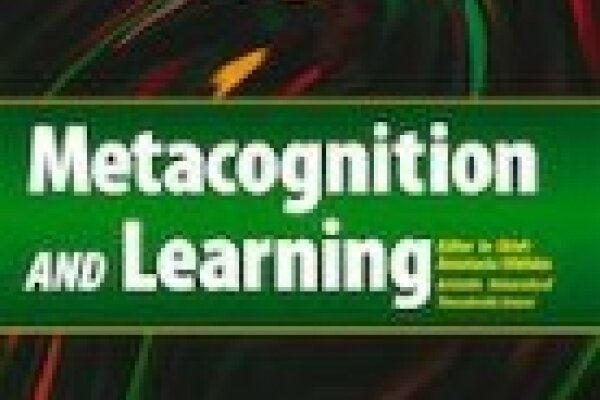
Ferdinand Stebner, Corinna Schuster, Xenia-Lea Weber, Samuel Greiff, Detlev Leutner, & Joachim Wirth
Metacognitive skills are often considered domain-general, therefore they have the potential to transfer across domains, subjects, and tasks. However, transfer of metacognitive skills seldomly occurs spontaneously. Schuster et al., (2020) showed that training can have beneficial effects on spontaneous near and far transfer of metacognitive skills. However, evidence of metacognitive skill transfer resulting in superior acquisition of content knowledge is pending. In the present study we set out to extend prior findings by investigating whether students benefit from training metacognitive skills not only regarding metacognitive skill application but also regarding content knowledge acquisition in learning tasks of different transfer distances. 243 fifth-grade students were randomly assigned to three different conditions for the first 15 weeks of a school year:
two hybrid metacognitive skill training conditions (metacognitive skills and one out of two cognitive strategies) and one non-hybrid training condition (cognitive strategies or motivation regulation only). For the second 15 weeks of the school year, all students received non-hybrid training involving a new cognitive strategy. Spontaneous metacognitive skill transfer of different transfer distances (near and far) was tested after the first and after the second 15 weeks of training. The effect of hybrid metacognitive skill training on the acquisition of content knowledge was measured once directly after the first 15 weeks. Results show that hybrid metacognitive skill training supported spontaneous transfer of metacognitive skills to learning scenarios of both near and far transfer distance. However, hybrid metacognitive skill training only had a positive effect on content knowledge acquisition if metacognitive skill transfer was near.
Ferdinand Stebner, Corinna Schuster, Xenia-Lea Weber, Samuel Greiff, Detlev Leutner, & Joachim Wirth
Metacognitive skills are often considered domain-general, therefore they have the potential to transfer across domains, subjects, and tasks. However, transfer of metacognitive skills seldomly occurs spontaneously. Schuster et al., (2020) showed that training can have beneficial effects on spontaneous near and far transfer of metacognitive skills. However, evidence of metacognitive skill transfer resulting in superior acquisition of content knowledge is pending. In the present study we set out to extend prior findings by investigating whether students benefit from training metacognitive skills not only regarding metacognitive skill application but also regarding content knowledge acquisition in learning tasks of different transfer distances. 243 fifth-grade students were randomly assigned to three different conditions for the first 15 weeks of a school year:
two hybrid metacognitive skill training conditions (metacognitive skills and one out of two cognitive strategies) and one non-hybrid training condition (cognitive strategies or motivation regulation only). For the second 15 weeks of the school year, all students received non-hybrid training involving a new cognitive strategy. Spontaneous metacognitive skill transfer of different transfer distances (near and far) was tested after the first and after the second 15 weeks of training. The effect of hybrid metacognitive skill training on the acquisition of content knowledge was measured once directly after the first 15 weeks. Results show that hybrid metacognitive skill training supported spontaneous transfer of metacognitive skills to learning scenarios of both near and far transfer distance. However, hybrid metacognitive skill training only had a positive effect on content knowledge acquisition if metacognitive skill transfer was near.